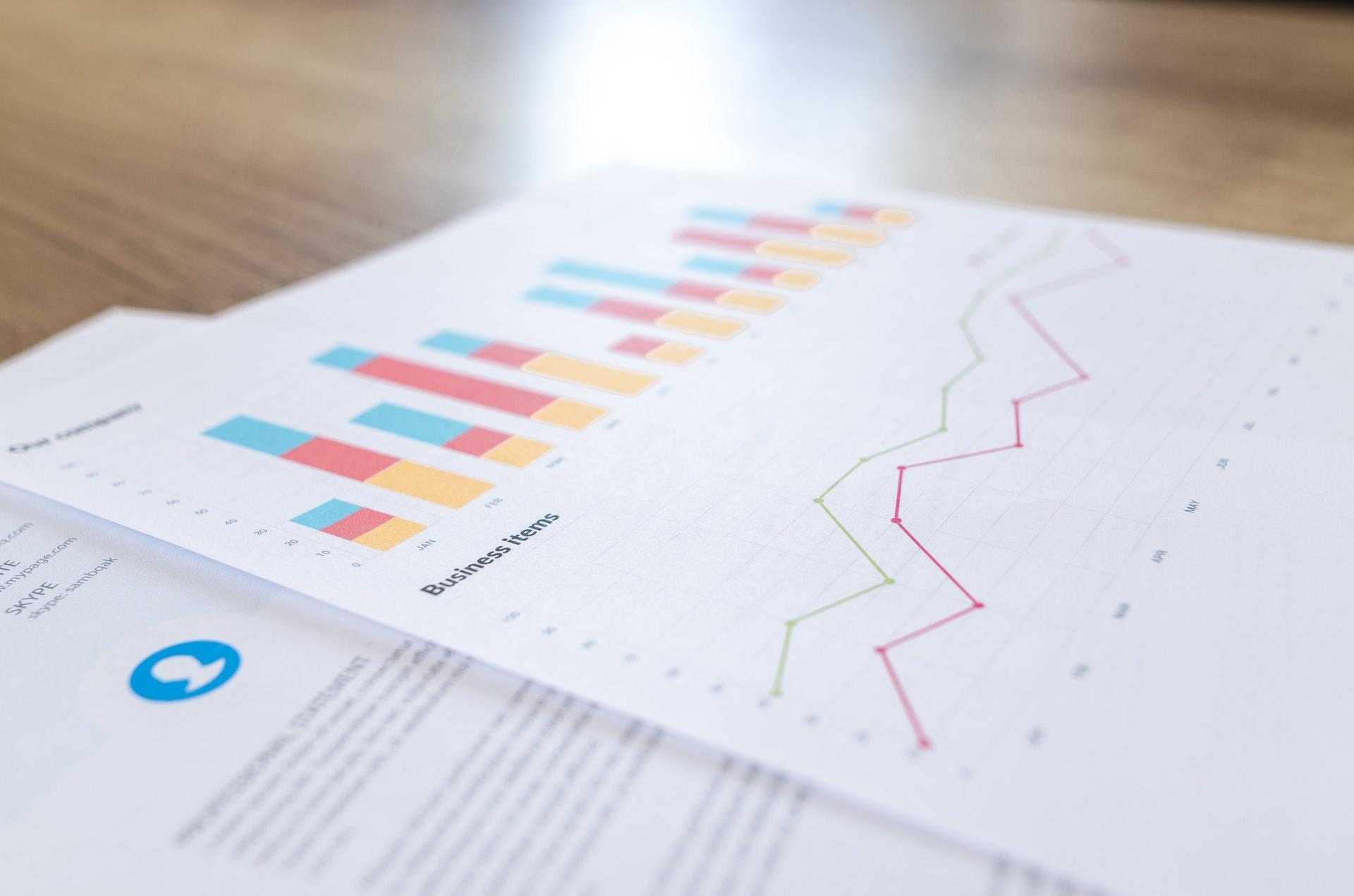In Canada, accountants have many career paths, including chartered professional accountants (CPA), tax accountants, auditors, etc. However, if you want to become an accountant in Canada, let's discover the essential qualifications for an accountant and what you need to study to become a qualified professional.
Accountants of all levels in Canada generally need a specific accounting degree, an excellent analytical mind, and numerical and mathematical language skills. Discover all the qualifications you need to become a Chartered Accountant or a Certified Public Accountant, and more, and embark on Canada's fascinating world of accounting.

Why Should You Consider Becoming An Accountant?
This career suits you if you love math and have good organizational and problem-solving skills. Studying accounting in Canada can provide excellent career prospects, with opportunities in both the public and private sectors. With the emergence of many start-up companies, you can be confident that you will be highly demanded in the job market and have flexibility in your career.
An accounting career offers many opportunities for professionals, including internal control, taxation, treasury, credit, and auditing, among others. Additionally, you can work independently as an accounting consultant, providing services for the growth and sustainability of businesses and institutions. Whether you specialize in cost reduction analysis or risk identification, your expertise will be valuable to different clients. You can even work for Canadian government agencies or international organizations!
Accountants are all-rounders; most professional sectors will highly appreciate your accountancy skills. High salaries, recognized and sought-after skills, and the possibility to work anywhere in the world are some of the benefits a career in accounting could offer.
Check out the various accounting courses on Superprof!

What are the Accounting Qualifications
To have the best chance of success in the accounting world in Canada, you need to hold a minimum of a 4 year Bachelor's Degree in Accounting.
In addition, depending on the area of accounting you want to specialize in, you may need to obtain a master's degree and complete the Chartered Professional Accountant (CPA), Certified Management Accountant (CMA), or Certified General Accountant (CGA) certification, among others.
In Canada, these certifications are highly recognized in the accounting world, and getting licensed by the provincial or territorial governing bodies is usually required for accountants and auditors practicing public accounting. This means you need to get a certification from a regulatory authority before working.
Ready to advance your accounting career? Let's learn more about these Canadian accounting bodies.
Check Superprof for the best online accounting courses.
The CPA or Chartered Professional Accountants of Canada
CPA Canada is one of the most recognized accounting organizations worldwide. The CPA promotes transparency in financial markets and contributes to standard-setting and public policy. Nowadays, the CPA represents 200,000 CPA professionals worldwide, providing professional accounting and financial management services (financial statements and tax returns, performing audits, and advising employers or clients on financial decisions).
CPA professionals typically earn above-average salaries, which are highly demanded in the job market. So, if you are wondering how to become a CPA, first, you should earn a Bachelor's Degree in accounting or business (although it is not necessary), hold a master's degree to boost your chances of success on the CPA exam and pass the CPA examination. Depending on your province, you may need at least one year of professional experience to obtain your CPA license, and you will need to renew it every 1-2 years.
The AAT or Association of Accounting Technicians
The Association of Accounting Technicians was created following the merger of the Institute of Accounting Staff and the Association of Technicians in Finance and Accounting in 1989. Today, it has more than 140,000 members worldwide, providing the minimum qualification for anyone wanting to start an accounting career.
The AAT offers a range of optional certificates, from basic or foundation level to a level 4 qualification, equivalent to studying at university for a year. Typically, the AAT qualification is considered the minimum requirement for a career in accounting or at least a prerequisite for roles that offer greater career advancement opportunities.
The AAT qualifications are divided into four different modules:
- The Foundation Certificate in Accounting will prepare you for an entry-level accountant position. You will learn the basic accounting principles, how finance administration works, and the rudiments of bookkeeping and cost. You will also be taught how to use accounting software. It takes one semester to a year to complete.
- The Foundation Diploma in Accounting and Business is delivered the same teachings as the Foundation Certificate in Accounting and includes business communication skills. It takes six to twelve months to complete.
- The Advanced Diploma in Accounting approaches complex accounting specialties such as final accounts, ethical practices, and bookkeeping. Again, this qualification can be achieved in six to twelve months.
- The Professional Diploma in Accounting is the highest qualification the AAT provides. It takes up to 18 months to get and covers highly specialized accounting skills such as managing budgets, evaluating a company's financial performance, and performing internal and external audits related to business or personal tax. You will also learn how to manage cash flow and treasury.

The ACCA or Association of Chartered Certified Accountants
The Association of Chartered Certified Accountants has been training accountants since 1904. Nowadays, it has more than 208,000 members worldwide and is currently training more than 500,000 students in 179 countries. The ACCA is an accountant qualification recognized in the UK, Australia, Canada, and other countries.
To obtain the ACCA, you must complete the exams in two years in Canada. However, if you already have some professional experience, some may be optional, but this depends entirely on your profile. Also, you must present relevant work experience as a certified accountant.
The Applied Knowledge exams are part of the ACCA examinations and test the essential understanding and techniques in accounting involving Business and Technology (BT), Financial Accounting (FA), and Management Accounting (MA). After that, students must take a set of Applied Skills exams, which includes Corporate and Business Law, Performance Management, Taxation, Financial Reporting, Audit and Assurance, and Financial Management.
Are you living in Calgary? Find the best accounting courses in Calgary
The CIMA or Chartered Institute of Management Accountants
Are you interested in becoming a Management Accountant? The CIMA is the world's largest professional body of management accountants and offers a professional qualification. It's committed to improving the mobility of internationally trained professional accountants, and today, it recognizes more than 100,000 highly skilled management accountants worldwide.
The professional qualification provided by the CIMA is one of the most recognized global qualifications for management accounting, financial accounting, and business-focused subjects. The different levels of qualification offered by the CIMA revolve around four main subjects: Technical Skills, Business Skills, Leadership Skills, and People Skills.
The 12 professional qualification exams will take you four years to complete, including the three years of work experience needed to validate the certification. Most students should gain enough work experience before registering for CIMA.

Hard Work, High Rewards
Becoming a chartered accountant in Canada may be daunting. You will most certainly have to balance working a 9-to-5 job and studying. However, the reward of obtaining such certifications is always worth it.
Following qualification, a chartered accountant in Canada can expect to earn around $80,000 per year, according to Canada Talent. Entry-level positions start at around $62,100 annually, while most experienced workers can make up to $106,500 annually. Besides the salary expectations, this certification guarantees finding a job in any industry you wish to join.
If you want to start preparing for the Canadian accounting certifications, here are the best accounting courses on Superprof!

Steps to Becoming a Better Accountant
To work in Canada, you must obtain specific accounting education and certifications. We also recommend identifying the following traits to make you stand out as an accountant. Believe us when we say that if you work on developing these traits, you may be named among the top accountants in your company.
- Detail-oriented: Making small mistakes during accounting processes could result in significant financial losses. Firms and companies prefer to hire accounting professionals who pay more attention to details. So, to improve in accounting, one crucial skill to polish is paying attention to detail.
- Be tech-savvy: Being an accountant doesn't revolve around knowing math only. With the current trends and updates, accountants need to be proficient in using accounting software and other financial tools, such as Quickbooks, Xero, and FreshBooks.
- Be trustworthy: Reliability and trustworthiness are traits of top accountants. An accountant must be trustworthy because they will be in charge of managing classified and delicate information. Clients and top management need a guarantee that you can handle your job responsibilities flawlessly.
- Team player: Are you a good team player with excellent team management skills? Most accountants work with various employees to achieve organizational goals. If you are not a team player, you may be unable to work efficiently with others. Being a team player is also one of the skills most employers look for before hiring an accountant.
- You value integrity: Integrity plays a vital role in your career as an accountant and a person. Your employers and clients share a lot of their financial information with you. Some of this information is delicate, and you should only use it within allowed limits. Integrity is when you can maintain privacy with all these details and continue to maintain trust.
What Are the Common Challenges Most Accountants Face?
In your quest to become an accountant, you will undoubtedly face challenges. Some of the problems accountants face are cash flow, automation artificial intelligence, and adapting to new regulations, among many others.
- Automation: One of the problems facing accountants today is technology and automation. Accountants may need help deploying modern-day automation to improve accounting processes. However, this problem doesn't threaten the profession; no robot will ever take your job away. As an accountant, you should learn to adapt and understand the usefulness of automation and technology in improving accuracy and reducing errors.
- IT literacy in accounting: Now more than ever, the digital revolution has impacted all professional sectors. These days, accountants complete almost all financial processes on the cloud. You may be disadvantaged compared to other accountants without a vast technical knowledge of cloud accounting software, SQL programming, and problem-solving skills. Therefore, gaining knowledge of cloud accounting tools, spreadsheet management, and data management will ultimately give the extra.
- Updating skill requirements: There is a continual demand for accounting and finance experts with up-to-date skill sets. For example, the more adept you are in financial forecasting, financial analysis, and cash flow projection, the more valuable you become in the market.
- Ever-changing tax laws: Accounting regulations, standards, and compliance requirements constantly evolve due to economic conditions, technological developments, and international markets, creating new challenges for accountants. Staying current on accounting regulatory changes will be crucial to provide transparency and clarity during your professional practice.
- Securing Financial data: Cyber threats are a significant challenge for most organizations. Although these threats will continue to remain and may even increasing the future, an accountant can easily tame them with the proper knowledge and know-how of cloud tools and processes needed to counter cyber-attacks on the financial and accounting system.

Find an Accounting Tutor
If you need accounting tutoring or help studying for these accounting qualifications, go to Superprof! Our tutoring platform has hundreds of accounting tutors registered and based in Canada. Our accounting tutors can help you prepare better for any accounting certification exam, and some of them even have success rates as high as 98%!
Check Superprof for the best online accounting courses!
Summarize with AI:
















